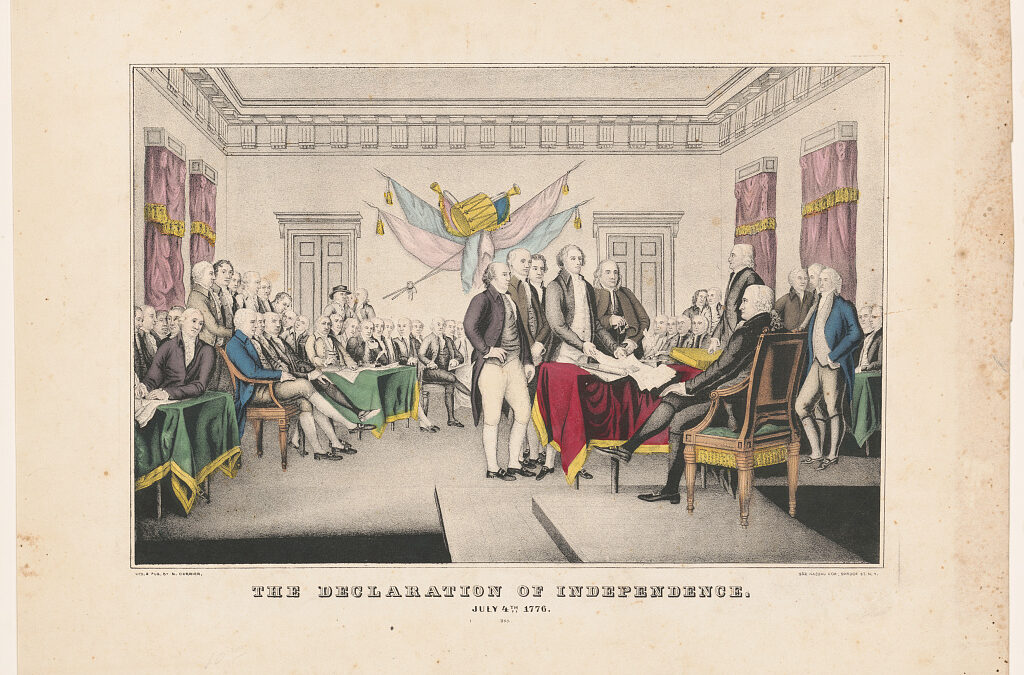
Despite his failure at presidential politics, Jeb Bush emerged from the recent campaign with perhaps unparalleled influence on K-12 education. Minions with ties to his Florida-based, Bill Gates-funded Foundation for Excellence in Education (FEE) are populating the U.S. Department of Education (USED) under Secretary Betsy DeVos, and FEE leverages Bush’s education legacy to push its preferred policies in multiple states. One of those policies is competency-based education (CBE).
FEE says CBE “is a system of instruction where students advance to higher levels of learning as soon as they demonstrate mastery of concepts and skills regardless of time, place or pace.” FEE’s slick videos claim CBE is superior to traditional education because it personalizes learning, ensuring that a student understands each concept before moving to the next. What’s not to like?
CBE is essentially the same thing as outcome-based education (OBE), which was all the rage in the 1990s until parents rebelled. OBE and now CBE posit that the government should establish outcomes it wants students to achieve and then work backwards, setting interim benchmarks along the journey to that goal. Students would work at their own pace to establish “competency” at each benchmark.
One preliminary but obvious question: Is “competency” what we’re shooting for in education? How many parents, if asked what they want from their child’s schooling, would answer, “We want him to be competent”? So this is the first problem with CBE: it aims not for excellent, but for good enough.
There’s a Lot More Where That Garbage Came From
But CBE is more problematic than that. Where to begin? First, the idea of establishing measurable competencies simply doesn’t work for many disciplines. It’s possible in math, where skill builds upon skill, but how could it work in studying, say, British literature? Common Core, which proponents have lauded as a perfect fit with CBE (see here and here), solves this problem by dispensing with British literature.
Since CBE is useless in academic disciplines that don’t lend themselves to digitally measurable outcomes, we’ll inevitably see further narrowing of curricula, so that the “measurable” disciplines crowd out the humanities. This fits well with the workforce-development philosophy of Common Core, which aims to convert all of K-12 education into utilitarian job-training.
Should there be any doubt that CBE/Common Core is training rather than education, consider this commentary by Michael Horn, a prolific advocate of CBE and other robotic schemes to reinvent education for his concept of the twenty-first century. Horn describes how CBE works by analogizing it to a Toyota assembly line. (Recall that Bill Gates likened education to electrical outlets—a similar mindset.) Horn doesn’t explain how, exactly, this works in teaching English or history.
Unless . . . the goal isn’t to teach English or history. Perhaps something else is being taught, just as with OBE in the 1990s. According to Dr. Bruno Manno, then of the Hudson Institute, the vague outcomes governments established under OBE focused more on “values, attitudes and behaviors – often reflecting quasi-political and ideologically correct positions – rather than knowledge, skills and other cognitive academic outcomes.”
The goal wasn’t to instill academic knowledge, it was to train children to give responses in non-cognitive realms, to exhibit the psycho-social skills the government considers most valuable. This is what prompted opposition from parents then, and this is what CBE is trying to replicate now.
Our Choices: Minimum Competency Or Indoctrination
Some CBE proponents straightforwardly argue that education must be changed to focus less on instilling knowledge and more on training students in “twenty-first-century skills” such as creativity, communication, and collaboration. Unencumbered by facts, the government can then establish its own definitions of what success looks like in those areas.
CBE proponents insist that all students can achieve success under this model if given enough time and support. Occupants of the real world will grasp immediately that, given natural differences in students’ academic ability, this simply isn’t possible unless either 1) the bar for “competence” is set so low that anyone can meet it, in which case it’s scandalous that we’re even talking about installing CBE, or 2) the “competencies” to be measured have little to do with academic knowledge, but rather are non-cognitive attributes that practically any human being can be trained to develop, just like rats in a maze.
This is where CBE becomes much more dangerous than its predecessor OBE. Modern technology allows the training to be accomplished much more effectively, and with data-capture mechanisms that can literally reshape our children’s lives.
It’s no surprise that advocates of CBE also push “digital” or “personalized” learning. Bush’s FEE operates an initiative called Digital Learning Now, designed to “advanc[e] state policies that create a high-quality digital learning environment to better equip all students with the knowledge and skills to succeed in this 21st-century economy.”
Slicing and Dicing Kids’ Minds for Market
Digital learning uses interactive software to track the student’s every keystroke, and perhaps his physiological reactions, to create a personal mind-map illustrating not just what the child knows but also how his brain works. This is perfect for CBE. The student can work his way through the different benchmarks at his own pace and have all his responses recorded and incorporated into an algorithm that shows where he is and where he’s likely to go.
Knowing the student to this level of intimacy has several benefits—not to the student, but to corporations and the government. The nub of the issue is data. Among twenty-first-century corporations, data is currency, and education-technology corporations will even give away their products for free to get their hands on it.
With his every keystroke, a student on an interactive platform generates enormous amounts of data that the corporation can use to better market to him in the future. Each piece of data on the platform is tagged, and the student’s every interaction with it reveals valuable information the company can use for product development and individualized marketing. “Minority Report” comes to mind.
According to the CEO of mind-mapper Knewton, the ed-tech companies will have so much data on each student that they can predict what he will do and tell him what he should do. Few parents want the government (through the schools) to have this much information on their children, but of course, parents won’t be told how all this works.
Plugging Kids Into a Planned Hole In a Planned Economy
Another benefit to corporations benefits the government as well. Remember that the entire CBE/Common Core scheme is designed for workforce development. When the government has such intensely personal algorithms on all citizens, it’s easier to slot those people into the workforce needs of politically connected corporations.
One way this would happen is through the concept frequently called “digital badges.” As CBE students achieve a certain benchmark on their interactive platforms, they would be certified as “competent” on that particular skill. That certification, badge, or “knowledge map,” depending on the terminology, would be incorporated into their algorithms. Colleges or potential employers could use a student’s collection of digital badges to determine if he or she is the right person for the available position. In fact, some data gurus predict these badges or knowledge maps “will eventually replace degrees and diplomas as credentials to open doors to higher education and employment.”
But as we’ve written, the problems with such predictive algorithms are myriad. Do we really want a society in which every action a child takes from K-12 is incorporated into an algorithm that may control the rest of his life? Do we want to turn over vast swaths of education decision-making to machines? What if the machines get it wrong? If biased information goes into the algorithm, is there any way for the student to fix it later?
One Ring to Rule Them All
The privacy implications alone are sobering. In the first place, federal student-privacy law likely doesn’t cover this mountain of data points that the corporations and the government (through public schools) are collecting on children, and ed-tech corporations and private foundations such as FEE lobby vigorously for state-level “privacy” loopholes that allow the data-mongers to continue with their activities essentially unimpeded.
Even worse, there’s little assurance that this enormously personal data—which should never have been collected in the first place—is secure from hacking. Federal investigations have uncovered the shocking lack of data security at USED, and stories of compromised student data are all too commonplace.
Bush and other CBE proponents don’t mention any of these considerations when touting competency-based training. Nor do they mention the effect on teachers, who would be marginalized if not ultimately replaced under CBE. If a teacher is reduced to merely unlocking the next computer screen when a student achieves a “competency,” why hire a professional when a less-expensive clerk will do?
Also, what about the effects on private schools and homeschoolers? If the entire education system is converted to CBE, with its attendant badges and certifications, private schools and homeschooling parents will be forced in that direction as well. A student without the certified “competencies” expected by higher-education institutions and employers will be shut out of opportunities for advancement. If the goal is to force every American student into the data-collection system, this scheme works nicely.
Now Is the Time to Demand Answers
This discussion merely skims the surface of the arguments against CBE. Before falling for the FEE-type propaganda, state decision-makers should demand concrete answers. An obvious question would be this: Is there evidence that CBE improves student achievement? Though we won’t hear it from CBE proponents and their ed-tech allies, the answer is no.
Recent studies of this type of digital training show that it doesn’t improve academic achievement but may in fact diminish it. A major study from the international Organisation of Economic Co-operation and Development found that frequent computer use in classrooms is associated with lower student performance on international tests. The highest-performing countries, such as South Korea, have lower levels of classroom computer use.
OECD Director of Education Andreas Schleicher was quoted about the connection between high-performing nations and reduced technology: “If you look at the best-performing education systems, such as those in East Asia, they’ve been very cautious about using technology in their classrooms.”
This analysis is consistent with studies focusing on West Point students and on K-12 students in California, Canada, North Carolina, and Portugal. Even Gates, who stands to make billions from education technology as its use expands within education, admits the predicted technology-driven transformation hasn’t happened: “[W]e really haven’t changed outcomes.”
‘The Possibility of Questioning Has Been Taking Away’
In the face of CBE/ed-tech propaganda, decision-makers must consider what education really is and how it is best delivered. Propping students in front of screens and requiring them to scroll through prompts to demonstrate “competencies” in a linear pattern simply cannot replicate the results of interaction with a good teacher. The headmaster of one of Australia’s top private schools recognized this, and banned laptops from classrooms as inconsistent with “quality teaching.”
“We see teaching as fundamentally a social activity,” Headmaster John Vallance said. “It’s about interaction between people, about discussion, about conversation.” In other words, it’s not about CBE.
Vallance pointed out another problem with the mad rush to replace teachers with machines: “The digital delivery of teaching materials across Australia has had a powerful normative effect. It’s making it quite difficult for children to learn how to disagree, how not to toe the party line, because they can’t question things – the possibility of questioning things has been taken away from them.”
This is what competency-based education leads to. The government establishes the competencies, inculcated via technology that students cannot question. They may emerge with their badges or certifications, but not with curious minds nurtured by genuine academic knowledge. They’ll be reduced to cogs in the economic machine. Could that be the point?
One thing is certain: The Bushes and Gateses and other pushers of CBE won’t expose their own children to it. No, their children will attend expensive private schools that shun CBE and Common Core and prepare them for leadership positions in society. The role of the led will be filled by other people’s children, who have spent years in CBE developing government-approved mindsets.
CBE isn’t real education. It’s a mechanism for control. States must reject it.









